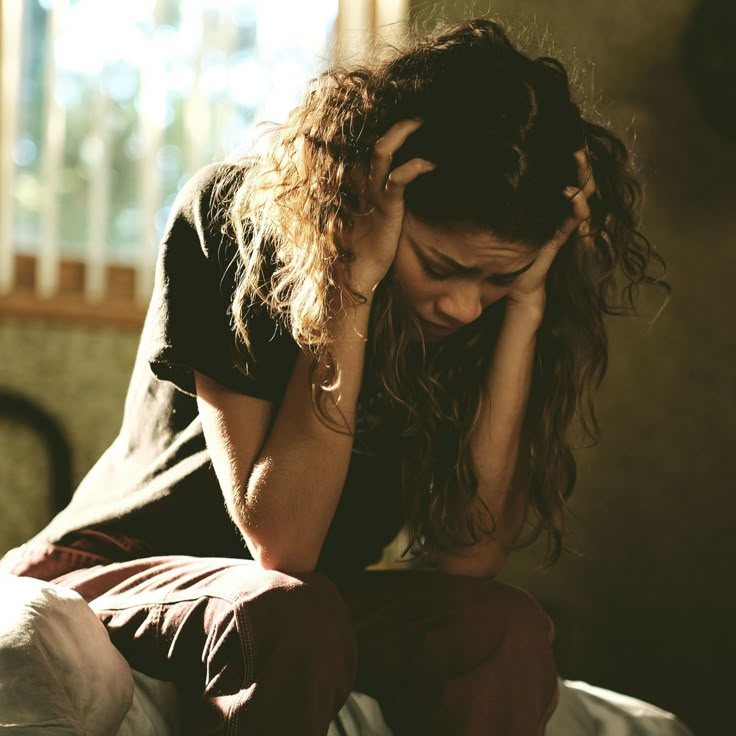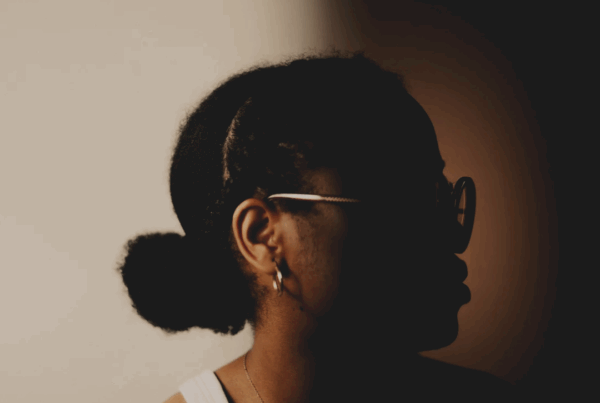Depression is still one of the least understood realities in Nigeria. It is spoken about in whispers, if at all. Too often it is dismissed as a foreign idea, a personal weakness, or a failure of faith. Many grow up hearing that it can be prayed away, worked away, or ignored until it disappears.
But silence has a cost. The shame around mental health leaves countless women carrying private struggles without language, support, or safe spaces to speak. And while statistics point to a growing crisis, the numbers alone don’t capture what it feels like to live with depression in this country, the quietness of it, the isolation, the daily negotiations just to stay alive.
In this piece, five Nigerian women share their experiences of depression and suicidal thoughts. Their names have been changed, but their words are their own. Together, their stories form a reminder: depression has many faces, and every one of them deserves to be heard.
Ifeoma, 27 — The Eldest Daughter
“I was the strong one. The one who carried my siblings on my back, who didn’t complain when my father lost his job, who smiled at church even when I wanted to scream. But by 19, I had already planned my death twice.”
It started when I was about 13 or 14. I’d remember lying on my bed and feeling like my chest was full of stones. I couldn’t cry, I couldn’t even explain it. I just wanted to vanish. I’d go to the bathroom, lock the door, and cry into my pillow.
I’d run the tap in the bathroom, just so no one would hear my tears. No one noticed, except occasionally my dad would make comments about me wasting his water and scold me.
I was the dependable child, so nobody asked me if I was okay. I cooked, cleaned, and even helped with my younger siblings. And every time they praised me for being strong, I felt weaker. Like, can’t they see I’m drowning?
I think I first thought of killing myself at Christmas during a family function. Not because I really wanted to die, but because I wanted someone to notice me. I used to imagine my funeral and think, okay, maybe then they will understand I was not fine. They will wish they had held me more. Maybe they wouldn’t repeat so often that I was the only one they could rely on, and I was supposed to be the saving grace of the family.
When I entered university, I sometimes stopped attending lectures. I would stay in my hostel room, with the curtains closed and my phone switched off. My roommates thought I was antisocial. The truth was, I couldn’t explain the heaviness. How do I explain to someone that I think I am only alive to fill the needs of my family?
The noise in my head turned into fantasies. Not elaborate ones. Just flashes. Like the day I was walking on the pedestrian bridge at Ojuelegba and thought, “What if I fell?” I would be free of the burden, and my family will be free of the guilt that I committed suicide, and it would simply be just an accident.
I never jumped, but the thought came like a mosquito buzz: constant, annoying, impossible to ignore. I’ve gone entire days without speaking because I couldn’t trust my voice not to crack.
These days, I write anonymously on Twitter. Strangers read my words, leave comments, and that helped. Finding people who felt the same way and had kind words was the kind of support I needed.
Mariam, 34 — The Pride of the Family
“I was the first to get a degree in my family, and the first to get a job at the bank. Everyone called me ‘our pride.’ But when the bank downsized and I lost my job, I crumbled.”
“For me, it began with insomnia. After I lost my bank job, I couldn’t sleep. I’d just lie there, staring at the ceiling fan going round and round. My mind wouldn’t stop asking: What are you without that job? What use are you now?
During the day, I’d sit on the couch in my wrapper, scrolling through my phone. Food lost its taste. Bathing felt like climbing a mountain. My mother would knock on the door and say, ‘Get up, Mariam. Don’t let the devil win.’ That only made me feel worse, like I was failing at being even a normal human being.
People around me thought I was lazy. ‘Get up, apply for jobs,’ they’d say. They didn’t see that I couldn’t even lift my own body. That’s what depression did to me: it stole motion. And when I did apply and got repeated nos, I felt like dying.
Suicidal thoughts came one evening while cooking. I looked at the knife in my hand, sharp and shiny, and thought: if I just turn this on myself, it would be quick, all the stress and worry would be gone. I scared myself, dropped it, and just cried. I’d see a car rushing by and think, What if I just tripped into the speeding vehicle? It’s quick, and no one would think it’s my fault.
Eventually, I tried to kill myself. I had gone to the pharmacy a few weeks earlier to get sleeping meds, and I just decided to take everything because I couldn’t picture an agonizing death. I woke up at about 11 pm the next day, feeling groggy and my head spinning, but definitely still alive. I’ll admit I was happy because I’m Christian nd that means straight hellfire.
What pulled me back was one friend. I texted her: I’m tired. She showed up with food and gist and didn’t tell me to ‘cheer up.’ She just sat there. That was what I needed at that moment, just a friend who wasn’t trying to solve or motivate but just sat by my side.
Kemi, 22 — The Instagram Soft babe
“People think because you post fine pictures, you’re fine. I was the ‘soft life’ babe online. In reality, I was drowning in debt and loneliness.”
“I didn’t even realise it was depression at first. I thought it was just stress. But then it became a cycle: I’d wake up with this heaviness. I’d cry, wipe my face, and then take selfies for Instagram, as if everything was fine. When I wasn’t crying, I experienced intense irritability that made me hate everyone around me. I was angry and raging at everyone, and then I’d just lie dead-eyed on the floor.
The thoughts about dying came after a fight with my mum. She called me a disgrace because I owed people money, and she found out. That night, I started mixing all the concoctions in the house, adding bleach and other ingredients. I just wanted to die because life didn’t have a point. Somehow, I wasn’t even scared. I just felt… tired.
I wasn’t crying. Rather, I was calm. I laid out my clothes neatly on the chair and wrote passwords in a notebook. I thought, at least I’ll leave things organised. That calmness scared me later, because it felt too logical.
All I remember was waking up in a hospital bed with the worst pain you could imagine. I remember waking up to my younger brother by my side. Maybe it was the look on his face, but that did it for me. We never spoke about it again, like ever ever.
My family never spoke about it, almost like they got even more ashamed of me. After about 3 weeks at the hospital with hospital bills to add to my increasing debts, I was discharged. I never thought of killing myself again, but it just made me realise that even after a drastic action, no one understood that what was a cry for help was considered as me seeking attention.
Zainab, 45 — The Wife That Was Shamed
“My depression started after my second miscarriage. I carried so much shame; everybody kept asking when I’d give my husband a son. At some point, I believed I was cursed. I tried to hang myself one morning, but the fan broke. I remember sitting on the floor, crying, then laughing because even death rejected me. ”
The first one, people told me, ‘it happens, try again.’ But the second time, it broke me. I remember leaving the hospital empty-handed, seeing other women holding their babies, and feeling like my body had betrayed me.
Everyone around me made it worse without meaning to. My mother would say, ‘pray harder.’ Aunties would whisper, ‘maybe she has a problem.’ Even my husband became distant. He didn’t shout or insult me, but he stopped looking me in the eye. That silence was louder than any insult.
I withdrew. I stopped visiting friends. My body felt like an empty shell. By the third miscarriage, it became worse. I had been trying to hold it together for years, but after it felt like I had nothing left. My ex-husband finally succumbed to the family pressures, but somehow it was still my fault.
I remember sitting in my parked car after a clinic visit, and the thought just dropped: what if I don’t go back upstairs? What if I just drove off and disappeared? When the marriage finally ended, I thought I would completely break. Everyone blamed me. Nobody said, ‘You’ve been through so much, are you okay?’ It was always, ‘you should have prayed more, you should have begged him.’ “You should have accepted a second wife.” The shame was crushing.=
I had to move back home, and I always felt terrified to step out because it felt like all eyes were on me, and my family didn’t make it easy. After my failed suicide attempt, I remember my mom and dad discussing that the fan had spoiled. They were wondering what happened, and since there was no logical explanation, I remember my mom saying something about me having a problem. She’s like, things like this probably caused issues in my marriage.
I moved out of that house during that week, eventually found a new job in a different country that allowed me to Japa. I am married now with beautiful babies, and that was years ago. But what really helped was finding stories of women like me, and of course, leaving the toxic environment.
Amaka, 32 – The Woman Who Supposedly Had It All
“I had everything I always thought I wanted, but I couldn’t stop this feeling like I just wanted it to end. “
“People look at my life and think I have everything together. Great job! Money in my account, a two-bedroom apartment in Lekki, and a car. I travel whenever I want and send my parents’ allowance every month. From the outside, it looks perfect.
So when I started feeling exhausted all the time, I thought, okay, this is burnout. I was working long hours, leading projects, and always on calls. If I took a weekend off, slept more, and maybe went on vacation, it would clear.
But the tiredness didn’t go. It wasn’t physical; it was like my joy had drained. I’d come back to my beautiful apartment and just sit on the couch staring at the wall. Sometimes I wouldn’t even eat the food I ordered. I had money, I had comfort, but nothing felt good, and I felt guilty because people had worse problems..
I also started crying randomly. In the car on the way to work, in the bathroom between meetings. And I couldn’t explain why. It didn’t make sense. I had no “reason” to be sad. That almost made me feel guilty. Like, how dare I feel empty when other people are struggling to survive?
It was my friend who pushed me to see a therapist. I remember telling the therapist, ‘I think I’m just burnt out.’ She asked me questions, listened carefully, and then said, ‘this isn’t burnout, this is depression.’ I froze. I couldn’t believe it. Me? Depressed? But the more we talked, the more it made sense.
Getting that diagnosis was strange. On one hand, it scared me. On the other, it gave me a name for what I had been feeling. I wasn’t lazy, I wasn’t ungrateful, I was depressed.
Now, therapy helps. Medication too. But what really keeps me steady are the minor adjustments: logging off work at a particular time no matter what, letting myself actually rest without guilt, saying no when I’m overwhelmed. Depression doesn’t care about your salary or your apartment. I had to learn that the hard way.
Where to Get Help
These five women’s stories are different, but they share one truth: depression rarely looks like what people expect. It can hide behind responsibility, poverty, shame, or even success. Suicidal thoughts aren’t always loud; sometimes they’re quiet suggestions in the middle of ordinary moments.
If you’re struggling, you don’t have to face it alone.
Where to start:
- Mentally Aware Nigeria Initiative (MANI): Call or text 0809 111 6264 or 0811 168 0686 for confidential support.
- She Writes Woman Helpline: 020 1700 3191, open 24 hours a day.
- LUTH Suicide Research and Prevention Initiative (SURPIN): +234 908 021 7555.
- Talk to someone you trust. Many women say what helps isn’t a perfect solution, but one friend who shows up and stays.
- Small steps matter. Writing one honest sentence, taking a short walk, cooking a meal, saying a brief prayer, none of these are cures, but they can steady you.
- Therapy and medication are not weaknesses. They’re support tools, as ordinary and necessary as glasses for poor eyesight or insulin for diabetes.





